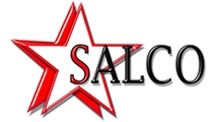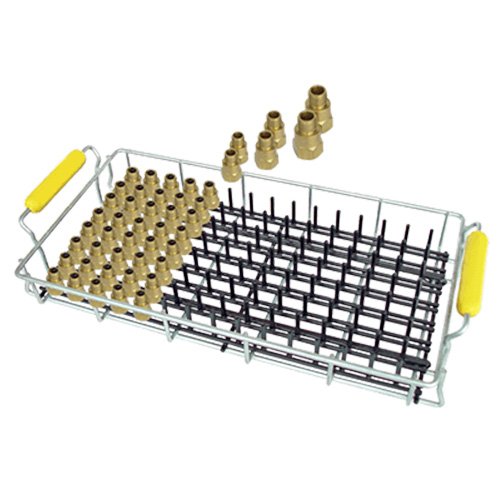In industries such as automotive, aerospace, electronics, and manufacturing, wire baskets play a crucial role in transporting and holding delicate components. The challenge for manufacturers lies in preventing damage to sensitive parts during storage and transit. To address this, protective coatings are applied to wire baskets, with nylon coating standing out as one of the top choices. This article explores the benefits and differences between nylon coating and other popular finishes for wire baskets, helping you choose the right coating for your application.
The Role of Protective Coatings in Wire Baskets
Wire baskets are essential in industrial environments where delicate parts must be handled with care. Made from durable materials such as stainless steel or carbon steel, wire baskets offer strength and support, but the metal surface alone may not provide adequate protection for sensitive parts. Uncoated wire baskets can lead to scratches, dents, or other forms of damage during handling. Protective coatings offer a buffer that prevents direct metal-to-part contact, which reduces the likelihood of damage.
Protective coatings come in various types, each offering unique benefits based on application needs. Among the most commonly used coatings for wire baskets are nylon coating, zinc plating, and powder coating. Let’s examine each one, with a special focus on the distinct advantages of nylon coating.
Nylon Coating: The Premier Choice for Part Protection
Nylon coating is a top choice for wire baskets when delicate or high-value parts require superior protection. Nylon is a type of synthetic polymer that forms a resilient, flexible coating. When applied to wire baskets, nylon offers numerous advantages:
- Exceptional Cushioning: Nylon coating provides a soft, impact-absorbing layer, making it ideal for delicate components that are prone to scratches, dents, or abrasions. Unlike hard finishes, nylon offers a gentle surface that minimizes the risk of surface damage, even during rigorous handling.
- Chemical Resistance: Nylon coating offers excellent resistance to chemicals, oils, and solvents. In environments where exposure to such substances is common, nylon-coated wire baskets protect both the basket and the parts within from potential damage. This is especially valuable in industries such as automotive and electronics, where exposure to oils and chemicals is routine.
- Temperature Tolerance: Nylon coating can withstand a wide range of temperatures, providing reliable performance in both hot and cold conditions. This makes nylon-coated wire baskets suitable for applications that involve extreme temperatures, such as industrial washing or curing processes.
- Long-Lasting Durability: Nylon is highly durable and resistant to wear and tear. It does not chip, peel, or crack as easily as some other coatings, maintaining its protective qualities over long-term use. This durability translates to lower maintenance and replacement costs for manufacturers.
- Anti-Slip Properties: Nylon-coated surfaces have natural anti-slip properties, helping parts stay securely in place during transport. This feature adds an extra layer of protection by preventing components from shifting or jostling, which can lead to accidental damage.
- Corrosion Resistance: While nylon itself is not a metal, it does offer a protective layer that shields the underlying metal from corrosion. This can prolong the lifespan of the wire basket, especially when used in environments with moisture exposure.
Zinc Plating: A Cost-Effective Option for Corrosion Protection
Zinc plating is another popular finish for wire baskets, particularly valued for its corrosion-resistant properties. During zinc plating, a thin layer of zinc is applied to the wire basket, creating a barrier that protects the metal from moisture and prevents rust. Zinc plating is commonly used in applications where corrosion resistance is important but high-impact protection is not a priority.
- Affordability: Zinc plating is generally more cost-effective than nylon coating, making it an attractive option for manufacturers on a budget. It provides good corrosion resistance at a lower price point.
- Moderate Durability: Zinc plating is durable and can withstand regular use, but it lacks the flexibility and impact resistance of nylon coating. While it offers protection against rust, it does not provide the cushioning needed for sensitive components.
- Temperature and Chemical Limitations: Zinc plating is less effective in environments with high temperatures or exposure to harsh chemicals. In such conditions, the zinc coating may wear down more quickly, reducing its protective capabilities.
- Limited Part Protection: Zinc-plated wire baskets are more suitable for parts that are less prone to scratches and dents, as the coating does not provide a soft or impact-absorbing surface. For high-value or delicate components, nylon coating remains the better choice.
Powder Coating: A Versatile and Attractive Finish
Powder coating involves applying a dry powder to the metal surface, which is then cured under heat to form a smooth, even coating. This process creates a hard, durable finish that is resistant to scratches, chipping, and fading. Powder coating is available in a variety of colors, making it an aesthetically appealing option for applications where appearance is important.
- Strong Protection Against Scratches: Powder coating creates a hard, scratch-resistant surface that protects wire baskets from physical damage. However, it lacks the cushioning effect of nylon, making it less ideal for parts that are particularly susceptible to scratches.
- Wide Range of Colors: Powder coating is available in many colors, allowing manufacturers to color-code baskets for easy identification and organization. This feature can be particularly helpful in complex manufacturing environments with multiple production lines.
- Moderate Chemical and Corrosion Resistance: While powder coating offers some level of chemical and corrosion resistance, it is less effective than zinc plating for corrosion protection. It performs well in dry environments but may not hold up as well in areas with high humidity or chemical exposure.
- Aesthetic Appeal: Powder-coated wire baskets have a clean, uniform appearance that can enhance the visual appeal of a production facility. This may be beneficial in customer-facing areas or applications where a professional look is desired.
Choosing the Right Coating for Your Wire Baskets
The right coating for your wire baskets depends on the needs of your specific application. If your priority is protecting delicate parts from scratches, dents, and chemical exposure, nylon coating offers unmatched benefits. Its impact resistance, chemical tolerance, and durability make it an ideal choice for sensitive or high-value components.
Zinc plating may be sufficient for applications where corrosion resistance is the primary concern, and the parts themselves are less delicate. For environments that require both durability and an aesthetic touch, powder coating provides a hard, scratch-resistant finish with a professional look.
Ultimately, each of these coatings has its place in the industry. By understanding the strengths and limitations of each, manufacturers can choose the best finish for their wire baskets, ensuring that their components stay safe and their equipment lasts longer.



